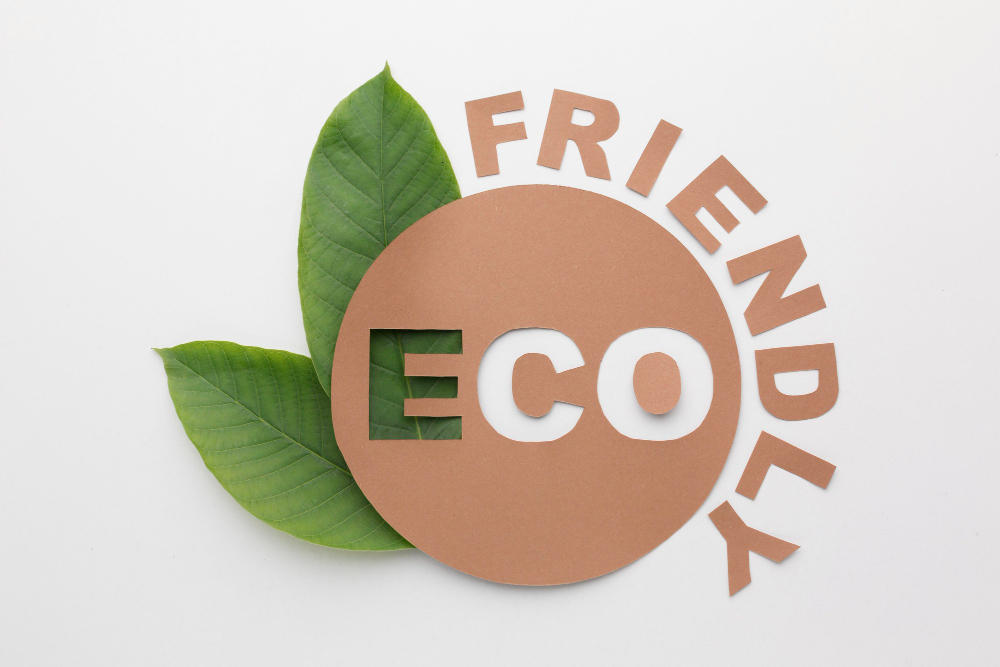Switching to a plant-based lifestyle isn’t just a health-conscious decision—it’s a powerful way to reduce your environmental impact. The growing awareness of how our food choices affect the planet has led to an increasing number of people embracing an eco-friendly vegan diet. This blog post will explore the various environmental benefits of adopting a plant-based lifestyle, offering insights into how this choice can contribute to a healthier planet.
Understanding a Plant-Based Lifestyle
What Is a Plant-Based Lifestyle?
A plant-based lifestyle focuses on consuming foods that are derived primarily from plants. This includes fruits, vegetables, grains, nuts, seeds, and legumes. Unlike vegetarianism, which might include dairy and eggs, a strict plant-based diet avoids all animal products, including honey.
The Growing Trend of Eco-Friendly Veganism
The eco-friendly vegan movement has gained momentum as more people recognize the impact of their dietary choices on the environment. By choosing plant-based options, individuals can reduce their carbon footprint, conserve resources, and contribute to the overall well-being of the planet.
The Environmental Impact of Animal Agriculture
Greenhouse Gas Emissions
Animal agriculture is one of the leading contributors to greenhouse gas emissions, particularly methane and nitrous oxide. These gases are significantly more potent than carbon dioxide and contribute to global warming. A plant-based lifestyle reduces the demand for animal products, leading to a decrease in emissions.
Land Use and Deforestation
Raising animals for food requires vast amounts of land, leading to deforestation and habitat destruction. By embracing an eco-friendly vegan lifestyle, less land is needed for food production, preserving forests and natural habitats.
Conserving Water with a Plant-Based Diet
Water Usage in Animal Agriculture
Animal agriculture is a water-intensive industry. It takes thousands of gallons of water to produce a single pound of beef, whereas plant-based foods require significantly less water. By choosing a plant-based diet, you can help conserve one of our most precious resources.
The Role of Eco-Friendly Veganism in Water Conservation
Eco-friendly veganism promotes the consumption of foods that have a lower water footprint. This not only helps conserve water but also ensures that water is available for other essential uses, such as drinking, sanitation, and agriculture.
Key Point 1: Adopting a plant-based lifestyle can significantly reduce your carbon footprint and contribute to water conservation efforts. By making conscious food choices, you can play a vital role in protecting our planet’s resources.
The Benefits of a Plant-Based Lifestyle for Soil Health
Soil Degradation from Animal Farming
Animal farming practices, such as overgrazing and the use of synthetic fertilizers, can lead to soil degradation and loss of fertility. This impacts the ability of the land to support plant life and contributes to environmental degradation.
Promoting Soil Health through Plant-Based Agriculture
Plant-based agriculture, especially when done sustainably, can improve soil health by enhancing its structure and nutrient content. Crop rotation, cover cropping, and organic farming methods contribute to a more resilient and fertile soil.
Reducing Air Pollution with a Plant-Based Diet
The Role of Animal Agriculture in Air Pollution
Animal agriculture contributes to air pollution through the release of ammonia, methane, and other harmful gases. These pollutants can lead to respiratory issues in humans and contribute to climate change.
How Eco-Friendly Veganism Helps Improve Air Quality
By reducing the demand for animal products, eco-friendly veganism can help decrease air pollution. Plant-based foods generally have a lower environmental impact, resulting in cleaner air and a healthier planet.
The Role of a Plant-Based Diet in Preserving Biodiversity
The Impact of Animal Agriculture on Wildlife
The expansion of animal agriculture often leads to habitat destruction, threatening wildlife and reducing biodiversity. Deforestation, pollution, and overfishing are all consequences of our demand for animal products.
Protecting Ecosystems with an Eco-Friendly Vegan Lifestyle
Adopting a plant-based diet helps protect ecosystems by reducing the need for land and resources used in animal farming. This, in turn, helps preserve habitats and supports biodiversity.
Key Point 2: A plant-based lifestyle not only benefits your health but also plays a crucial role in preserving biodiversity and protecting natural ecosystems. Your dietary choices can make a significant impact on the environment.
The Carbon Footprint of Food Choices
Comparing Carbon Footprints: Animal vs. Plant-Based Foods
Animal-based foods typically have a higher carbon footprint compared to plant-based foods. This is due to the resources required to raise, feed, and transport animals. On the other hand, plant-based foods generally require fewer resources and produce fewer emissions.
Reducing Your Carbon Footprint with Eco-Friendly Veganism
By choosing an eco-friendly vegan lifestyle, you can significantly reduce your carbon footprint. Opting for locally sourced, seasonal, and organic plant-based foods further minimizes environmental impact.
The Role of Plant-Based Diets in Combating Climate Change
A. Climate Change and the Food Industry
The food industry is a major contributor to climate change, with animal agriculture being a leading factor. Greenhouse gas emissions from livestock, deforestation, and energy use in food production all contribute to global warming.
How a Plant-Based Diet Can Help Mitigate Climate Change
Switching to a plant-based diet is one of the most effective ways to combat climate change. By reducing the demand for animal products, we can decrease greenhouse gas emissions and slow the progression of global warming.
The Connection Between Diet and Deforestation
Animal Agriculture and Forest Loss
Forests are cleared at an alarming rate to make way for animal farming and the cultivation of animal feed crops like soy and corn. This deforestation contributes to the loss of vital ecosystems and accelerates climate change.
Preserving Forests with a Plant-Based Diet
A plant-based diet requires less land, reducing the need for deforestation. By choosing eco-friendly vegan options, you can help preserve forests and protect the wildlife that depends on them.
Key Point 3: Your dietary choices have a direct impact on deforestation and climate change. By adopting a plant-based lifestyle, you can contribute to the preservation of forests and help combat climate change.
The Impact of a Plant-Based Diet on Marine Ecosystems
Overfishing and Its Consequences
Overfishing has led to the depletion of fish populations and the destruction of marine ecosystems. The demand for seafood has also contributed to pollution, habitat destruction, and the decline of marine biodiversity.
Protecting Oceans with an Eco-Friendly Vegan Lifestyle
An eco-friendly vegan lifestyle eliminates the demand for seafood, helping to protect marine ecosystems. By choosing plant-based alternatives, you can support the health of our oceans and contribute to the preservation of marine life.
11. The Role of Plant-Based Diets in Reducing Energy Consumption
A. Energy Use in Animal Agriculture
Animal agriculture is highly energy-intensive, requiring large amounts of fossil fuels for feed production, transportation, and processing. This contributes to greenhouse gas emissions and the depletion of non-renewable energy resources.
B. The Energy Efficiency of Plant-Based Foods
Plant-based foods generally require less energy to produce, making them a more sustainable choice. By adopting an eco-friendly vegan lifestyle, you can help reduce energy consumption and lessen the strain on our planet’s resources.
12. The Environmental Impact of Dairy Production
A. The Carbon Footprint of Dairy
Dairy production is associated with significant greenhouse gas emissions, including methane from cows and carbon dioxide from the energy used in production and transportation. Dairy farming also contributes to water pollution and land degradation.
B. Choosing Plant-Based Alternatives
Plant-based dairy alternatives, such as almond, soy, and oat milk, have a lower environmental impact. By choosing these options, you can reduce your carbon footprint and support a more sustainable food system.
Key Point 4: Switching to plant-based alternatives, such as non-dairy milk, can significantly reduce your environmental impact. Small changes in your diet can contribute to a more sustainable and eco-friendly lifestyle.
13. The Benefits of a Plant-Based Diet for Water Quality
A. Water Pollution from Animal Agriculture
Animal agriculture is a major source of water pollution, with runoff from farms contaminating rivers, lakes, and oceans. This pollution can lead to dead zones, harmful algal blooms, and the loss of aquatic life.
B. How an Eco-Friendly Vegan Diet Protects Waterways
By reducing the demand for animal products, an eco-friendly vegan diet helps decrease water pollution. Choosing plant-based foods that are grown using sustainable practices can further protect our waterways and ensure clean water for future generations.
14. The Role of Plant-Based Diets in Reducing Plastic Waste
A. The Plastic Problem in the Food Industry
The food industry is a significant contributor to plastic waste, with packaging, utensils, and containers adding to the growing problem of plastic pollution. Animal products, in particular, often come with excessive packaging.
B. Reducing Plastic Waste with a Plant-Based Lifestyle
A plant-based lifestyle can help reduce plastic waste by choosing products with minimal packaging and opting for fresh, whole foods. Many plant-based options are available in bulk, allowing you to bring your own containers and further reduce waste.
15. The Impact of Plant-Based Diets on Food Security
A. The Challenge of Feeding a Growing Population
As the global population continues to rise, the demand for food increases. Animal agriculture is resource-intensive and may not be sustainable in the long term, particularly as resources become scarcer.
B. How Plant-Based Diets Contribute to Food Security
Plant-based diets require fewer resources and can be more easily scaled to meet the needs of a growing population. By adopting an eco-friendly vegan lifestyle, you can support food security and contribute to a more sustainable future.
Key Point 5: Embracing a plant-based lifestyle not only benefits the environment but also contributes to global food security. Your dietary choices can help create a more equitable and sustainable food system.
16. The Role of Eco-Friendly Veganism in Supporting Sustainable Agriculture
A. The Impact of Industrial Agriculture
Industrial agriculture, particularly animal farming, is associated with environmental degradation, including soil depletion, water pollution, and loss of biodiversity. These practices are unsustainable and can have long-term consequences for the planet.
B. Promoting Sustainable Agriculture with Plant-Based Choices
Eco-friendly veganism supports sustainable agriculture by prioritizing plant-based foods that are grown using environmentally friendly methods. This includes organic farming, permaculture, and regenerative agriculture, all of which contribute to a healthier planet.
17. The Connection Between Diet and Animal Welfare
A. The Ethical Implications of Animal Agriculture
Animal agriculture raises significant ethical concerns, including the treatment of animals, the conditions in which they are raised, and the impact of farming practices on their well-being. These concerns have led many to reconsider their dietary choices.
B. How a Plant-Based Diet Aligns with Animal Welfare
A plant-based diet eliminates the need for animal products, supporting a lifestyle that is more compassionate and ethical. By choosing eco-friendly vegan options, you can contribute to the welfare of animals and reduce the demand for factory farming.
18. The Economic Benefits of a Plant-Based Lifestyle
A. The Cost of Animal Products vs. Plant-Based Foods
Animal products are often more expensive than plant-based alternatives, particularly when considering the hidden costs associated with environmental damage, healthcare, and subsidies. A plant-based lifestyle can be more affordable and sustainable in the long run.
B. Supporting a Sustainable Economy with Eco-Friendly Veganism
By choosing plant-based products, you can support a more sustainable economy. Eco-friendly veganism encourages the growth of industries that prioritize environmental stewardship, ethical practices, and fair trade.
19. The Role of Education and Awareness in Promoting a Plant-Based Lifestyle
A. The Importance of Raising Awareness
Education and awareness are key to promoting the benefits of a plant-based lifestyle. By understanding the environmental, ethical, and health impacts of our food choices, individuals are more likely to make informed decisions.
B. How You Can Spread the Word
As someone who has embraced an eco-friendly vegan lifestyle, you can play a crucial role in raising awareness. Share your knowledge, support educational initiatives, and lead by example to inspire others to make the switch.
20. The Future of Plant-Based Living
A. The Growing Movement Toward Eco-Friendly Veganism
The plant-based movement is growing rapidly, with more people recognizing the environmental benefits of a plant-based lifestyle. This shift is being driven by a combination of awareness, innovation, and a desire for a more sustainable future.
B. How You Can Be Part of the Change
By embracing a plant-based lifestyle, you can be part of the solution to some of the world’s most pressing environmental challenges. Every choice you make has the power to create a ripple effect, leading to a healthier planet for future generations.
10 FAQs About the Environmental Benefits of a Plant-Based Lifestyle
1. What are the environmental benefits of a plant-based lifestyle?
A plant-based lifestyle reduces greenhouse gas emissions, conserves water, preserves biodiversity, and helps combat climate change.
2. How does a plant-based diet help reduce water usage?
Plant-based diets require significantly less water compared to animal agriculture, helping to conserve this precious resource.
3. What impact does a plant-based diet have on deforestation?
A plant-based diet reduces the demand for land used in animal farming, helping to preserve forests and natural habitats.
4. How can a plant-based diet reduce air pollution?
Animal agriculture contributes to air pollution through the release of harmful gases. A plant-based diet helps decrease this pollution.
5. Is a plant-based diet more sustainable than an omnivorous diet?
Yes, a plant-based diet is generally more sustainable as it requires fewer resources, produces fewer emissions, and has a lower environmental impact.
6. How does a plant-based lifestyle support food security?
Plant-based diets are more resource-efficient and can be scaled to meet the needs of a growing population, contributing to food security.
7. What are some plant-based alternatives to dairy products?
Popular plant-based alternatives to dairy include almond milk, soy milk, oat milk, and coconut milk.
8. Can a plant-based diet help combat climate change?
Yes, by reducing greenhouse gas emissions and the demand for animal products, a plant-based diet can help mitigate climate change.
9. How does a plant-based lifestyle contribute to soil health?
Sustainable plant-based agriculture practices improve soil health by enhancing its structure and nutrient content.
10. What role does education play in promoting a plant-based lifestyle?
Education and awareness are crucial for informing people about the environmental benefits of a plant-based lifestyle, leading to more informed and sustainable choices.



